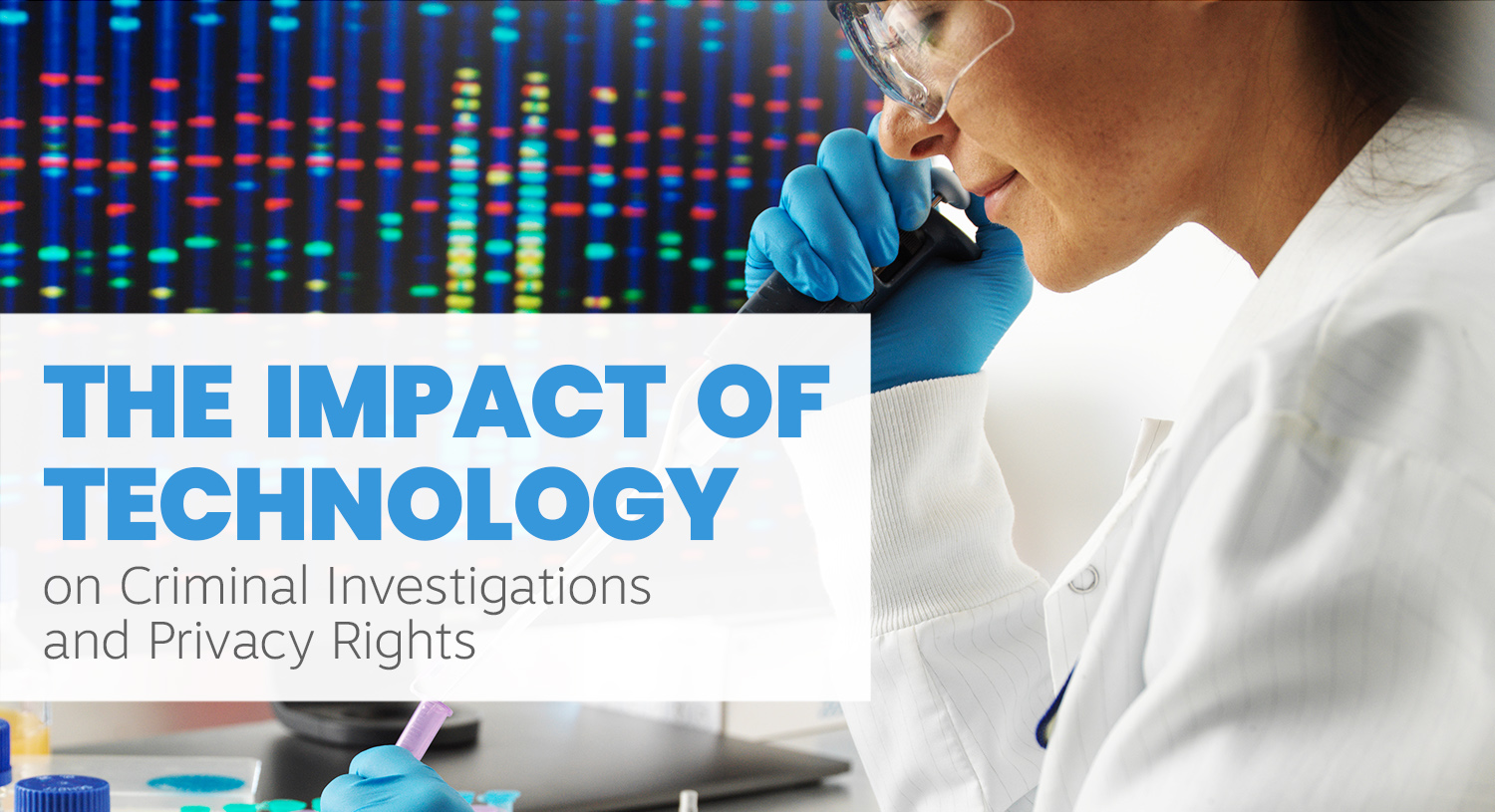The process, types, and techniques of criminal investigation and protecting privacy rights can be complex. The landscape of emerging technology is constantly changing, impacting both investigative and prosecutorial aspects of the legal system in positive and negative ways. This article will discuss the benefits and challenges of the impact of technology on criminal investigations and privacy rights.
Benefits for Criminal Investigations:
- Enhanced Evidence Collection: Technology such as CCTV cameras, digital forensics, and GPS tracking provides law enforcement with more tools to collect evidence. For instance, surveillance footage can offer crucial information in solving crimes, and digital forensics can recover data from electronic devices.
- Data Analysis: Advances in data analytics and artificial intelligence (AI) have revolutionized the ability to quickly analyze large volumes of data. Predictive policing algorithms can identify patterns and potential criminal activities before they happen, which can help prevent crimes.
- Improved Communication: Modern communication tools enable better coordination between law enforcement agencies, police, and the public. For example, social media platforms can disseminate information quickly and gather tips from the public.
- DNA and Forensic Technology: Advances in DNA analysis and other forensic technologies have significantly improved the accuracy of identifying suspects and solving cold cases. Techniques like gene sequencing and new forensic analysis methods have enhanced the capability to link evidence to individuals.
Challenges to Privacy Rights:
- Surveillance and Tracking: The proliferation of surveillance technology, including public CCTV cameras and smartphones with location tracking, raises concerns about the extent of surveillance. Continuous monitoring can lead to a significant erosion of privacy if not adequately regulated.
- Data Security: The increased collection of personal data comes with the risk of data breaches and unauthorized access. Sensitive information can be exposed, leading to potential misuse or identity theft.
- Consent and Transparency: Technology often advances faster than regulations, leading to issues around consent and transparency. Individuals need to be fully aware of how their data is collected and used or how it may be shared with law enforcement.
- Bias and Fairness: AI and machine learning algorithms used in predictive policing can inadvertently perpetuate biases in the data they are trained on. This can lead to discriminatory practices and reinforce existing inequalities.
Balancing Act:
To navigate the balance between leveraging technology for criminal investigations and protecting privacy rights, several approaches can be considered:
- Regulation and Oversight: Establish clear regulations and oversight mechanisms to ensure technology is used responsibly and transparently. This includes creating guidelines for data collection, storage, and usage.
- Public Awareness: Educating the public about their rights and how their data is used can help maintain trust and ensure that individuals are informed about the technologies impacting their privacy.
- Ethical Standards: Developing and adhering to ethical standards for using technology in law enforcement, including considerations for minimizing biases and protecting individual rights.
- Legal Protections: Strengthening legal frameworks to protect individuals’ privacy and ensure that any use of technology in criminal investigations is balanced with respect for civil liberties.
At the intersection of digital innovation and ethical considerations, balancing utilizing technological advancements for effective law enforcement and protecting individuals’ rights and privacy is crucial. Addressing these challenges requires careful regulation, transparency, and ethical considerations to ensure that technology’s benefits do not come at the expense of personal privacy.
If you or your loved one’s privacy rights have been violated during a criminal investigation, contact the Law Offices of Reginald Keith Davis for your confidential consultation.
Contact us now at kcklawyer.com
Phone: (913) 299-8789

